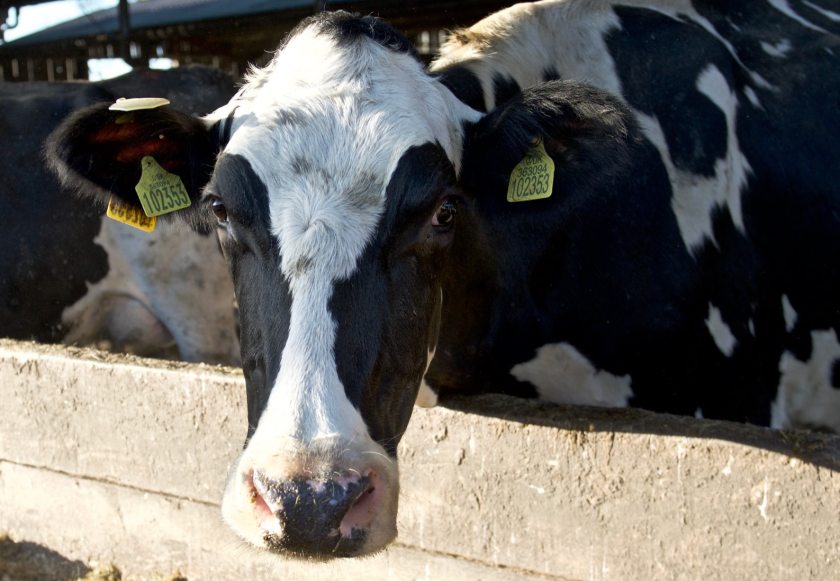Report shows carbon footprint data from 2,000 dairy farms

A new report shows the carbon footprint data from almost 2,000 dairy farms and the steps being taken to reduce farm emissions by 30% by 2030.
According to Arla's report, raw milk emissions come from six key areas on farm, with the highest being cow digestion (46%) and then cow feed (37%).
These are followed by manure handling (9%), energy production and usage (5%), emissions from peat soils (1%) and all other areas grouped together (2%).
The report 'A sustainable future for British dairy' shows that farmers who supply the co-operative are already producing milk with 1.13kg CO2e per kg of milk, around half the global average.
It also details the most common areas which farmers will focus on to reduce emissions further - 30% by 2030 - and the emerging technologies being trialled.
These include research to identify how to quantify and speed up carbon sequestration, which will naturally offset some emissions in the future given 79% of Arla’s farm land is used to grow grass.
Farmers will implement precision slurry spreading techniques, currently used by 53% of UK farmers, which will help reduce air born emissions of ammonia by between 30% and 90%.
Increasing the renewable energy produced on farm is also a goal for farmers who supply Arla, with 27% already producing green energy from wind or solar.
“Here in the UK, we are seeing increasing pressure on the food industry to take real action in the area of carbon emissions,” said Alice Swift, director of member relations UK.
"We see this report as an opportunity to explain how we are already measuring and monitoring our progress, and provide a balanced science-based debate on the hot topics surrounding dairy.
“Arla believes that dairy can and should be part of a sustainable diet. The report is testament to the hard work Arla farmers have put in and will enable the company to advocate further on farmers’ behalf."
Since launching last year, 7,990 farms across seven European countries have submitted data to 203 questions as part of Arla’s Climate Checks programme.
The questions cover the number of animals, feed composition, crop production, use of fertiliser, manure handling, use of electricity, fuel and renewable energy.








